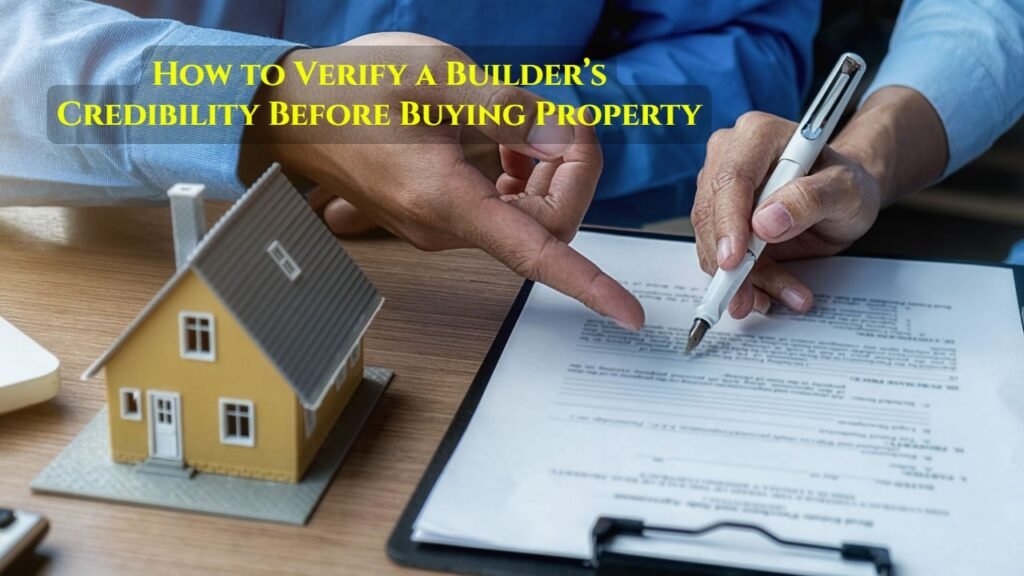Buying a home is a big decision, and one of the most important steps is making sure you can trust the builder. A well-known, reliable builder can give you peace of mind, while a shady one can cause years of trouble. Before you sign any papers, take the time to check the builder’s credibility. Here are some practical ways to do it:

1. Check Their Track Record
Look into the builder’s past projects. Have they delivered homes on time? Do their older buildings still look well-maintained? A history of delays, poor construction, or unfinished projects is a red flag. On the other hand, a builder with multiple completed projects that people are happy living in is usually dependable.
2. Verify Registrations and Approvals
Make sure the builder is registered with the local authorities and complies with all required laws. For example, check if their projects are listed under RERA (Real Estate Regulatory Authority). RERA registration ensures that the project is legally approved and protects you from unfair practices.
3. Read Customer Reviews
Online reviews and testimonials can give you an idea of the builder’s reputation. Don’t just rely on what’s written on their own website. Look at independent forums, real estate groups, and even talk to existing homeowners in their projects if possible.
4. Visit Ongoing Sites
A site visit tells you a lot about the builder’s quality and commitment. Look at how the construction is progressing. Are safety measures being followed? Is the work neat and professional? Seeing things firsthand is always better than relying only on brochures or ads.
5. Review the Legal Documents
Ask for the project’s legal papers, such as land ownership details, approvals, and clearances. If something feels complicated, consider hiring a property lawyer to review them for you. A transparent builder will never hesitate to share documents.
6. Assess Financial Stability
Builders who are financially sound are less likely to abandon a project midway. If a builder has many pending projects or a history of disputes, proceed carefully.
7. Look for Transparency
Good builders are open about timelines, costs, and policies. If you feel they are hiding details, avoiding questions, or making vague promises, take it as a warning sign.
A home is often the biggest purchase of your life, so it makes sense to do your homework. Verifying a builder’s credibility may take time, but it protects you from stress and unnecessary risks later. Choose wisely, and you’ll enjoy not just a home, but peace of mind.
